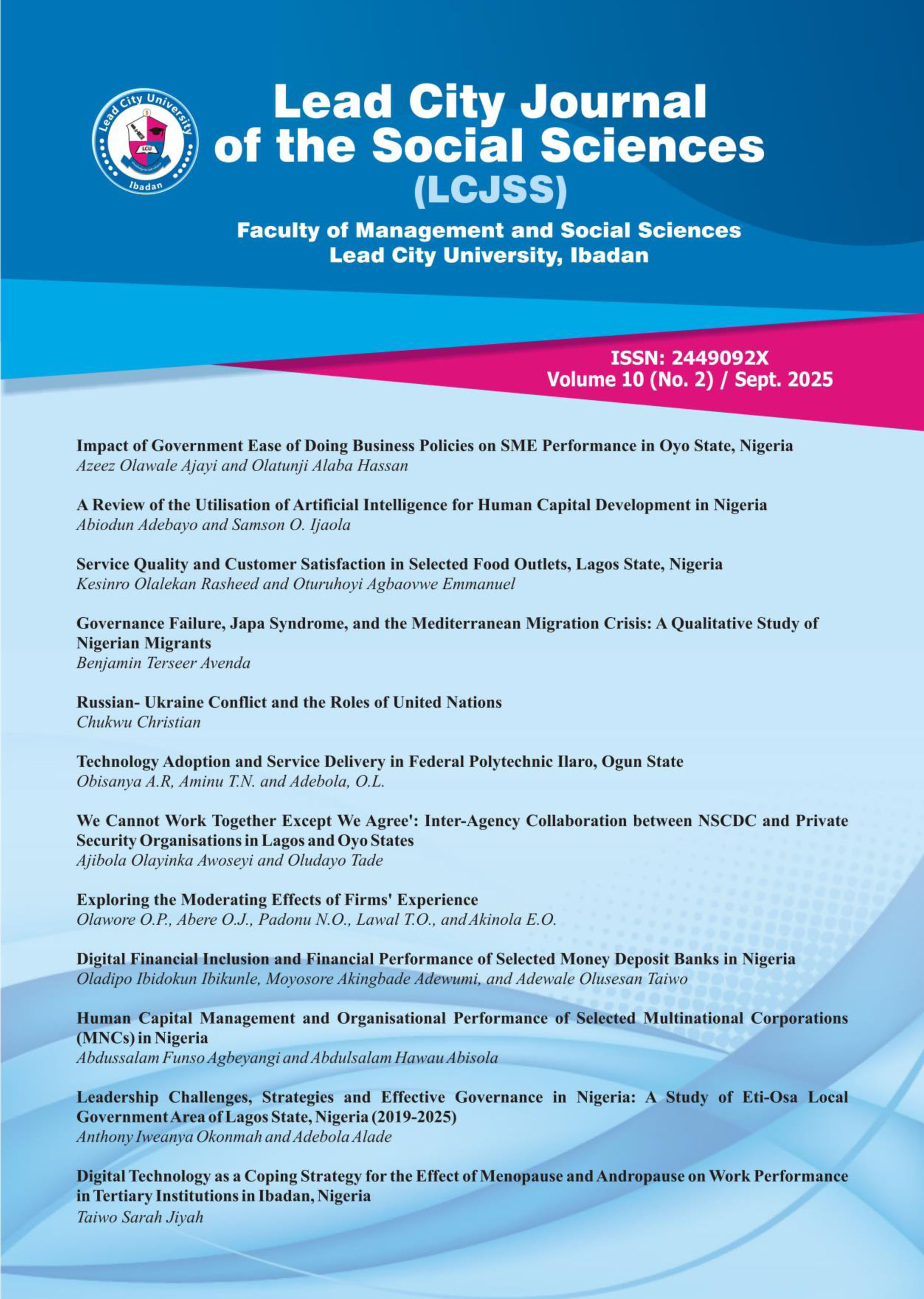We Cannot Work Together Except We Agree’: Inter-Agency Collaboration Between NSCDC and Private Security Organisations in Lagos and Oyo States
Keywords:
Interagency cooperation, NSCDC, private security organisations, collaborative theory and rational choice theory.Abstract
This study investigates the benefits of interagency cooperation between the Nigerian Security
and Civil Defence Corps (NSCDC) and Private Security Organisations (PSOs) in addressing
Nigeria’s complicated security challenges. The research aims to evaluate the benefits of such
cooperation, explore institutional arrangements necessary for collaboration, and identify
challenges hindering these partnerships. This study bridges a significant research gap by
applying the Collaborative Theory and Rational Choice Theory to the Nigerian security
landscape, offering a novel perspective on enhancing interagency collaboration. The study
employed an exploratory research design, focusing on in-depth interviews with 45 purposively
selected participants, including NSCDC personnel and representatives from six private security
organisations in Lagos and Ibadan. Data were collected using semi-structured interviews and
analyzed through content analysis, enabling a comprehensive exploration of participants'
experiences and perspectives. Key findings reveal that interagency cooperation enhances
intelligence sharing, resource pooling, and specialization, which are critical for effective crime
prevention. However, systemic barriers such as resource constraints, regulatory gaps, trust
deficits, and cultural differences significantly impede collaboration. The study concludes that
fostering effective partnerships requires well-structured institutional arrangements, including
role clarity, joint training programs, and standardized frameworks. To address these challenges,
the study recommends prioritizing trust-building initiatives, enhancing resource-sharing
mechanisms, and developing inclusive policies that involve private security organisations in
decision-making processes. By aligning incentives and creating a foundation of trust and
mutual respect, both entities can contribute meaningfully to Nigeria’s security architecture.
This research contributes to the body of knowledge by providing actionable insights into
interagency collaboration in developing countries. It underscores the importance of leveraging
complementary strengths and aligning organisational incentives to create a cohesive and
resilient security framework.

